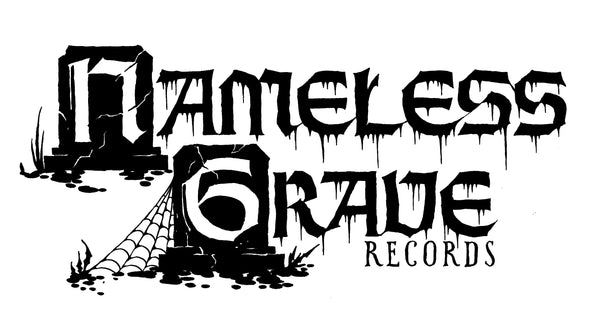Apollo Ra - Ra Pariah LP
Apollo Ra - Ra Pariah LP
Couldn't load pickup availability
By the end of the 1980s the big success stories in heavy metal had all been written and it was getting more and more difficult for young bands to reach a wider public and secure the all elusive record deal. Especially in North America. A fine example for this development are Apollo Ra from Baltimore in Maryland, a band with enormous potential and lots of promise.
The band was put together in 1986 by lead singer Daniel John Miller and drummer Steve Albinak. Fed up with the usual struggling cover band scene, the two musicians decided to forge ahead with their own original songs. The two soon met up with bass player Todd Channing Weaver. Bill McKeowon and Kevin Buckley, both on guitar, completed the line-up.
Apollo Ra derived their name from two ancient sun gods: Apollo, the Roman god, who was extremely powerful, and Ra, the Egyptian deity, fierce and revered.
“I usually write songs about things I feel strongly about, or things that I just think are great,” remarked singer Daniel John Miller in 1989, when the »Ra Pariah« album was originally issued (as a private pressing on cassette only). “The song ‘Bane Of The Black Sword’ was inspired by a fantasy book I loved by Michael Moorcock, about a character called Elric. ‘March Of Fire’ was written about the period after the Civil War, when the North burned the South. It’s not necessarily just about that, but I used the event to symbolize the whole idea of how useless war is. And ‘Crimson Streets’ was written because I was totally fed up with people doing cocaine everywhere I looked. It’s not meant to be a judgemental song though ... I don’t want to preach through my music. Instead it’s meant to get across my opinion of the self-destruction and depression that it causes. I hope people will see it that way.”
Trying to describe Apollo Ra’s own sound drummer Stephen Albinak added: “We pair up a relatively straight-forward metal sound with intelligent lyrics, without trying to be really complex or complicated. Everyone in the band has really great technique, but we don’t write songs just to show off technique – we write to have a great song. That’s not always the same thing.” It’s definitely not. And so singer Daniel John Miller offered in support: “A lo of people write by copying other people. We don’t. We deliberately work on having our own unique sound. It’s powerful, but at the same time it has a message. Basically everybody in the band has a different background and different influences, so when you combine these elements, our sound becomes very individual.”
Stephen Albinak summed up the strengths of Apollo Ra like this: “I think the vocals really stand out. You can play ripping leads or really awesome drums, but most people seem to lock into the vocals. Danny’s got a good range, but he doesn’t over-use it. He knows when it’s the right time to scream, or to keep his voice low, and he’s really good at expressing himself vocally. I think we have good guitar work too. Bill and Kevin both play lead and rhythm guitar, and they are a great team. Also, Todd and I form a very tight rhythm section, and play well together.”
Despite Apollo Ra’s enormous potential, they were never able to sign a proper record deal. Carl Canedy, legendary drummer with The Rods, who produced the elven songs on »Ra Pariah«, takes over the story: “I signed the band to my production company and carried on with the album. We had strong interest from Metal Blade (one of my regrets in the music business) and Roadrunner US. Unfortunately we never finalized a deal for the band.”
As a result the »Ra Pariah« album was only issued as a cassette on Neon City Productions in a strictly limited edition in 1989 (with Ida S. Langsam from New York handling PR through her Metal I’s company). Carl Canedy explains: “It was definitely a full album production. We did extensive pre-production for this album prior to heading to the recording studio. Everyone was blow away by the band and the album. Apollo Ra were certainly ahead of their time and never gained the success they deserved. Having said that, had we been released on a solid metal label, it might be a different story.”
The songs on »Ra Pariah« had kind of an Egyptian theme (at least in parts), which was pretty original for the year 1989. This concept had huge potential and it’s a shame Apollo Ra were never able to develop it any further … Carl Canedy concludes: “I would agree! The band was never able to mine that line of writing. They were discouraged, as would any band, at not being picked up by a label.”
Share


